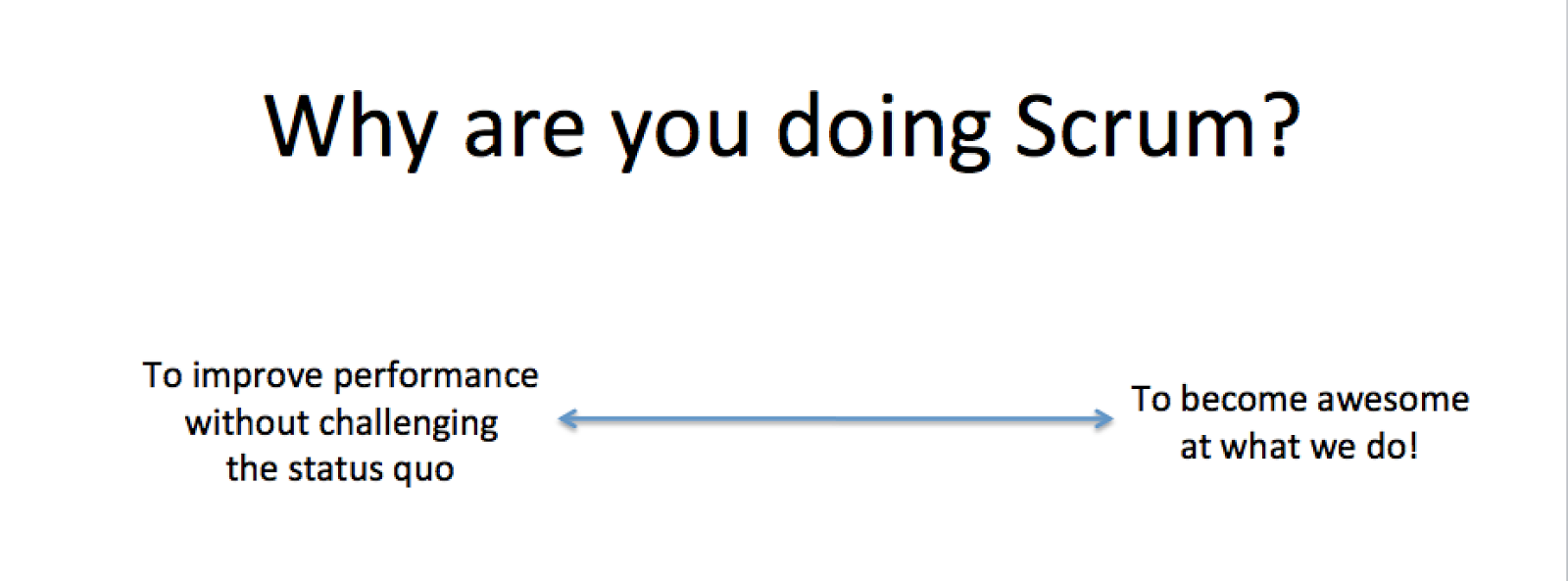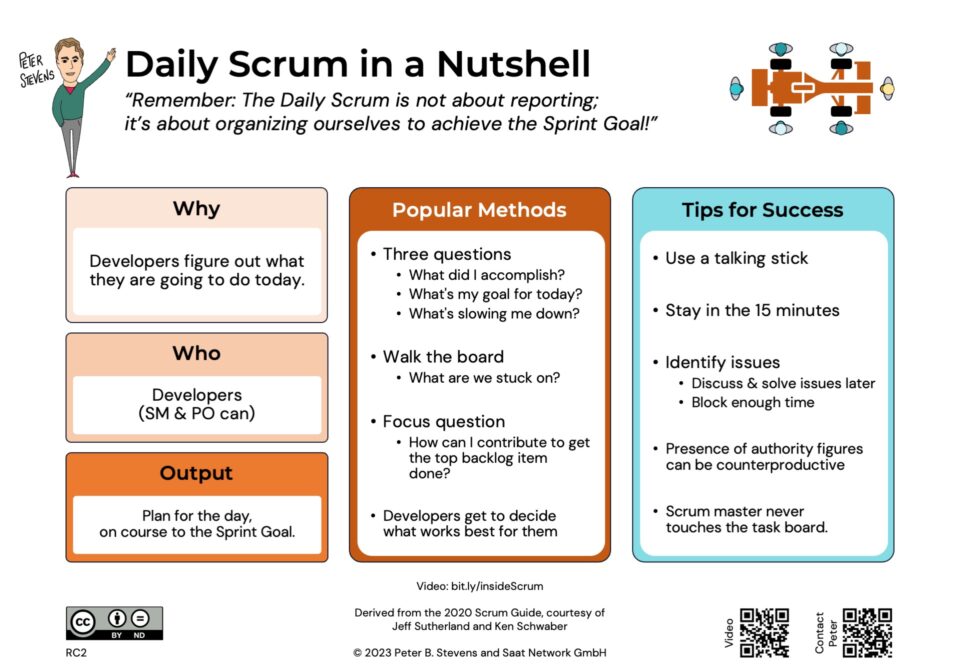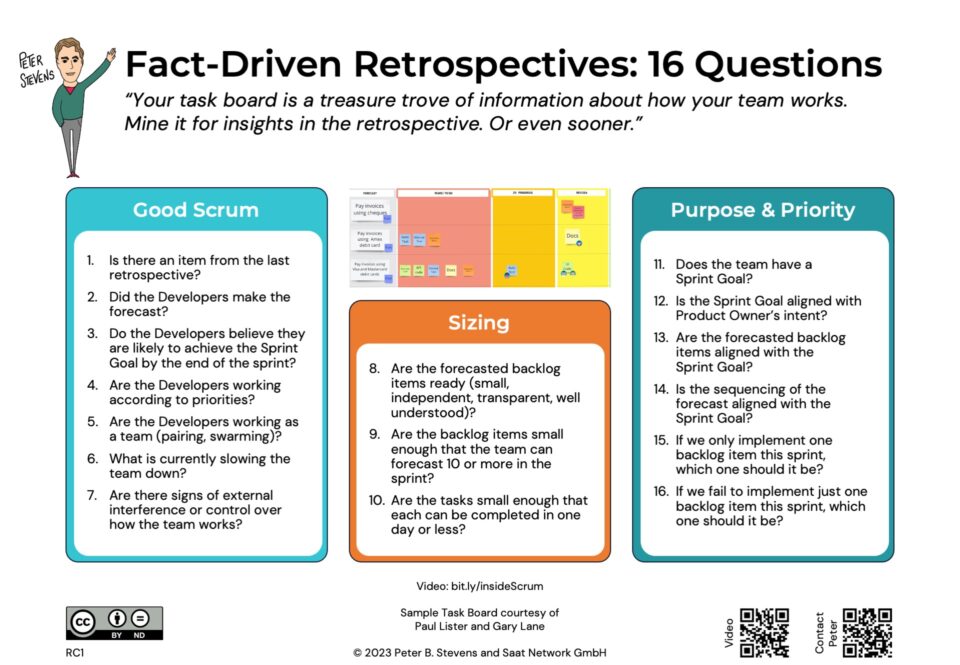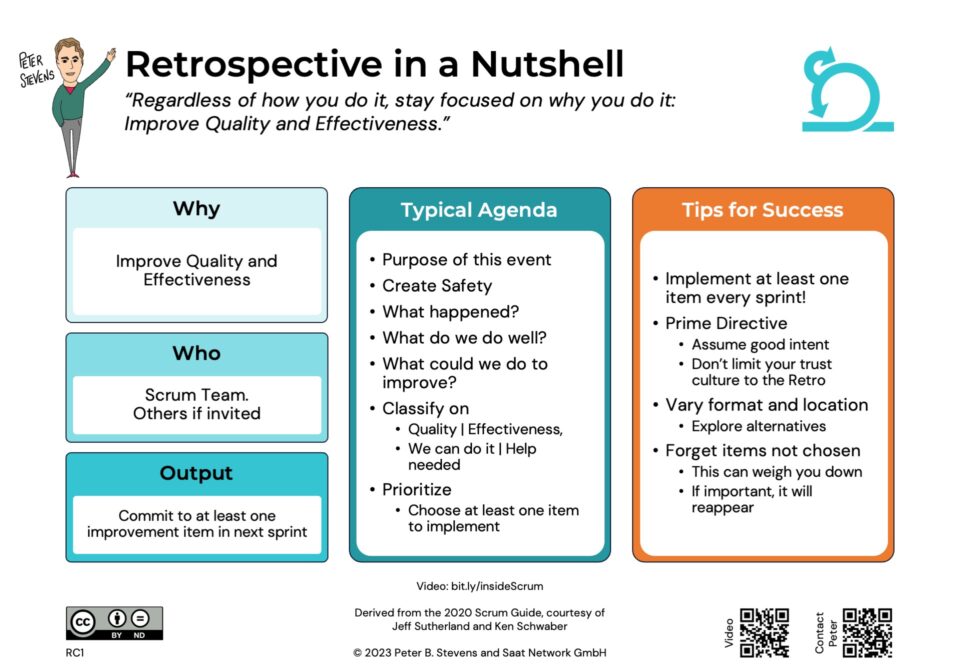What is the Agile Way to Adopt Agile?
13-12-2014How many people do you need in your team?
31-12-2014I am often asked questions like, “What do I do in Scrum when my team is spread across three locations?” My answer is usually something like, “you will suck.” “Don’t tell me that! That’s insulting! I have to do that.” At this point, I smile to myself and think, “that may be true, but you will still suck.”
Why do I have conversations like this?
Last week, a got a question about electronic task boards. I could smell another one of these ‘yes, but’ discussion starting, so I chose to answer the question with a question: Why are you doing Scrum? I drew this picture on a flip chart and invited the participants to put dots on the location corresponding to their (organization’s) goals:
Most dots were to the left of middle, the low performance choice, which explains why people did not like the high performance answer.
Scrum is based on the patterns of the 95th percentile of project performance, i.e. those awesome teams that are 3 to 10 times more effective than average. Those patterns are probably the same patterns as you experienced in your own best projects!
So why are you doing Scrum?






1 Comment
I think the anwser is in the two first words on the right hand – "To become". This means that we have the mindset and are wiling to make a change into something better, as individuals, as team members, always inspecting and adapting. This two points manage to understand what went wrong as a lesson to do better next time, to take action on our very concept of what is indeed right, challenging our own pre-concepts of right, everytime!